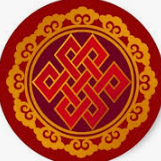Thailand Deports Hmongs Back To Laos
-
Recently Browsing 0 members
- No registered users viewing this page.
-
Topics
-
Popular Contributors
-
Latest posts...
-
8
Report Thai PM Visits Two London Venues to Boost Soft Power
Yep and I hope the trip itinerary allowed plenty of personal shopping days for her entourage between the 'working days'. -
62
-
19
Doctors to refuse carrying out mandatory chemical castration’
Not unless the victim was a relative. I wouldn't want to steal the opportunity from someone more deserving. I think you are underestimating my virility. -
62
Crime Swiss National 'David' Sentenced to Jail for Assaulting Thai Doctor in Phuket
Lots of elephant sanctuaries rent elephants. This is from an article I just looked up. Lots of farmers and others that live in the countryside have elephants and are willing to rent them out for money. It happens all the time. Elephants cannot be ‘rescued’ in Thailand, as they are classed as ‘working animals’ under the Beast of Burden Act 1939. This makes them private property of their owners, so they must be bought or rented. An elephant in peak condition might cost $100,000 to buy. -
3
Will Sadao immigration let me re-enter Thailand the same day?
So all this for a sus antenna import. -
3
Report True Network Outage Due to Power Failure, Compensation Announced
I got the SMS, but I don't need the compensatory gift. Who needs 10 GB to use in 24 hours, and who needs to make calls these days?
-
-
Popular in The Pub
-






.thumb.jpeg.d2d19a66404642fd9ff62d6262fd153e.jpeg)





Recommended Posts
Create an account or sign in to comment
You need to be a member in order to leave a comment
Create an account
Sign up for a new account in our community. It's easy!
Register a new accountSign in
Already have an account? Sign in here.
Sign In Now